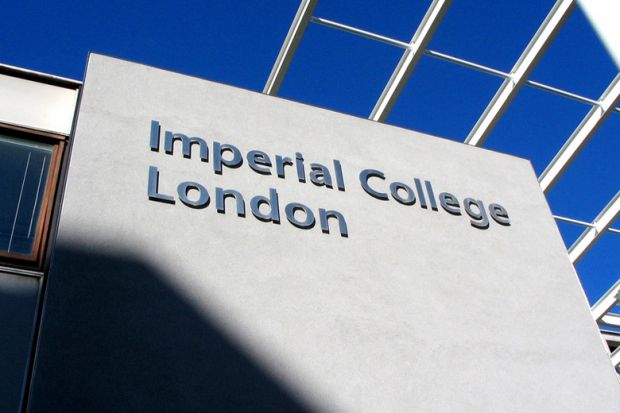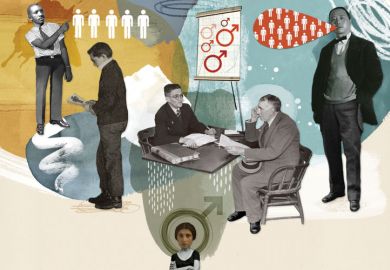The pursuit of excellence at one of the UK’s top universities has helped to create a culture of bullying, discrimination and fear, according to a report.
The report, based on a year-long research project at Imperial College London, heard that staff at the institution are too scared to speak out about problems, leaving them vulnerable, unheard or undermined.
Women in particular reported being silenced, it adds.
Imperial’s provost, James Stirling, said that the institution must do better and was committed to gender equality.
The institution commissioned researchers from the University of Sussex’s Centre for Gender Studies to look at gender equality at the institution because of events at student Varsity rugby matches last year.
The university apologised to the women’s rugby team after they were left playing to an empty stadium when the coaches ferrying spectators back to campus were allowed to leave early.
The team had alleged that they were treated unfairly compared with the men’s team and that a member of staff was overheard saying that they did not care “how those fat girls” got home, although an investigation found no evidence of the verbal abuse.
The research project collected data from almost 250 staff and students through in-depth interviews, focus groups, an open text survey and an anonymous blog. The researchers also used documentary analysis and observations at the college.
The full report has not been made public but an 11-page review document was circulated among staff by email on 9 December and has been published on Imperial's website.
It says the research found that Imperial's focus on excellence "had served the College well in many ways" but "this dominant focus had a negative impact on wellbeing and social equity".
“There were many examples given to the researchers of bullying and discriminatory behaviour…Bullying also intersected with categories such as class, gender (and gender identity), race, disability and sexual orientation,” says the review document.
Many of those questioned linked bullying and discrimination with the “'elite’ white masculinity” of the majority of the staff population, according to the report. “Examples of misogynistic and homophobic conduct were given and one interviewee expressed concern that the ‘ingrained misogyny’ at Imperial was so deep that it had become normal,” it adds.
The report also found that staff felt senior management would turn a blind eye to the poor behaviour of people deemed valuable to the university.
Despite a no-tolerance stance on harassment and bullying and support initiatives for those affected, the research found that staff and students did not speak up about issues. Participants said they did not speak out because they feared nothing would be done, that they would lose their jobs or that it would make matters worse.
“'Speaking up’ also intersected with equalities issues, and women in particular reported being silenced in various ways,” according to the review.
Many of those who took part in the research said that the sector-wide gender initiative Athena SWAN was seen as little more than a “box ticking exercise” that had “provided a veneer” to hide inequality at the university.
“There was a feeling from some participants that the College did not promote equality and diversity at all…The researchers noted that it is difficult to promote equality and diversity within an institution which is ‘so profoundly gendered, classed and raced’,” says the document.
Participants reported a lack of community spirit at the university and said that departments were played off against each other. Staff and students also said that they felt that asking for support was viewed as “shameful, weak and evidence of failure”.
In a news article about the report published on Imperial’s website, Professor Stirling said: “We strongly believe that Imperial is only a world-class institution because of our talented, diverse community. We want everyone at the College to feel supported, respected, and able to excel. That is why we are committed to ensuring gender equality and eradicating sexist behaviour wherever we can, at all levels.
“These findings remind us that we cannot stand still. We must do better,” he said, adding that the process may not be easy.
“I am confident that by working together we can create as supportive and inclusive an environment as we can, since that is what all our staff and students deserve,” he said.
Last year, Imperial carried out a review of its use of performance metrics after the suicide in 2014 of Stefan Grimm, a professor of toxicology at the institution who had been told he was “struggling to fulfil the metrics” of a professorial post.
Register to continue
Why register?
- Registration is free and only takes a moment
- Once registered, you can read 3 articles a month
- Sign up for our newsletter
Subscribe
Or subscribe for unlimited access to:
- Unlimited access to news, views, insights & reviews
- Digital editions
- Digital access to THE’s university and college rankings analysis
Already registered or a current subscriber?







